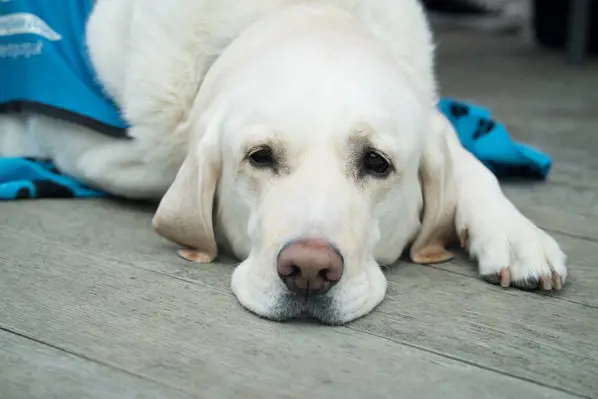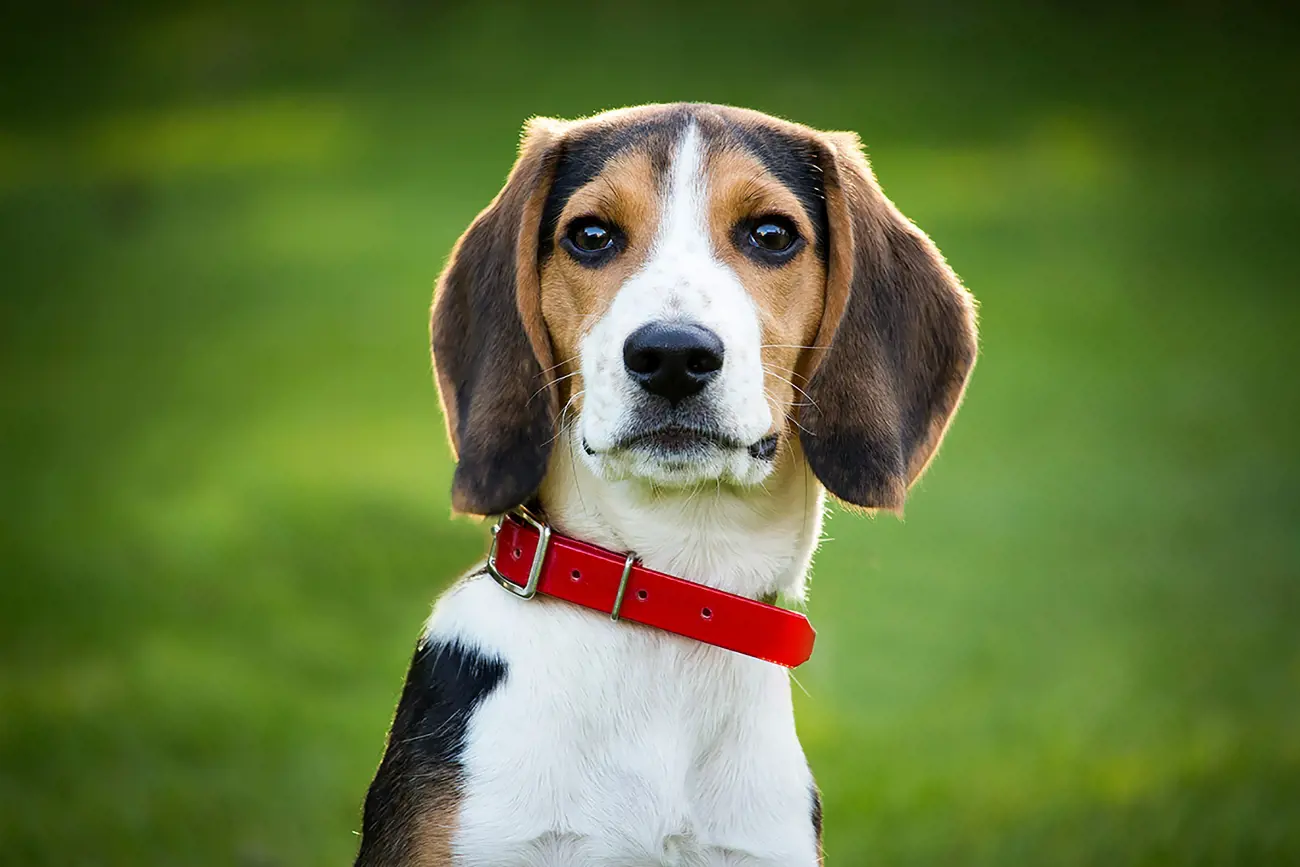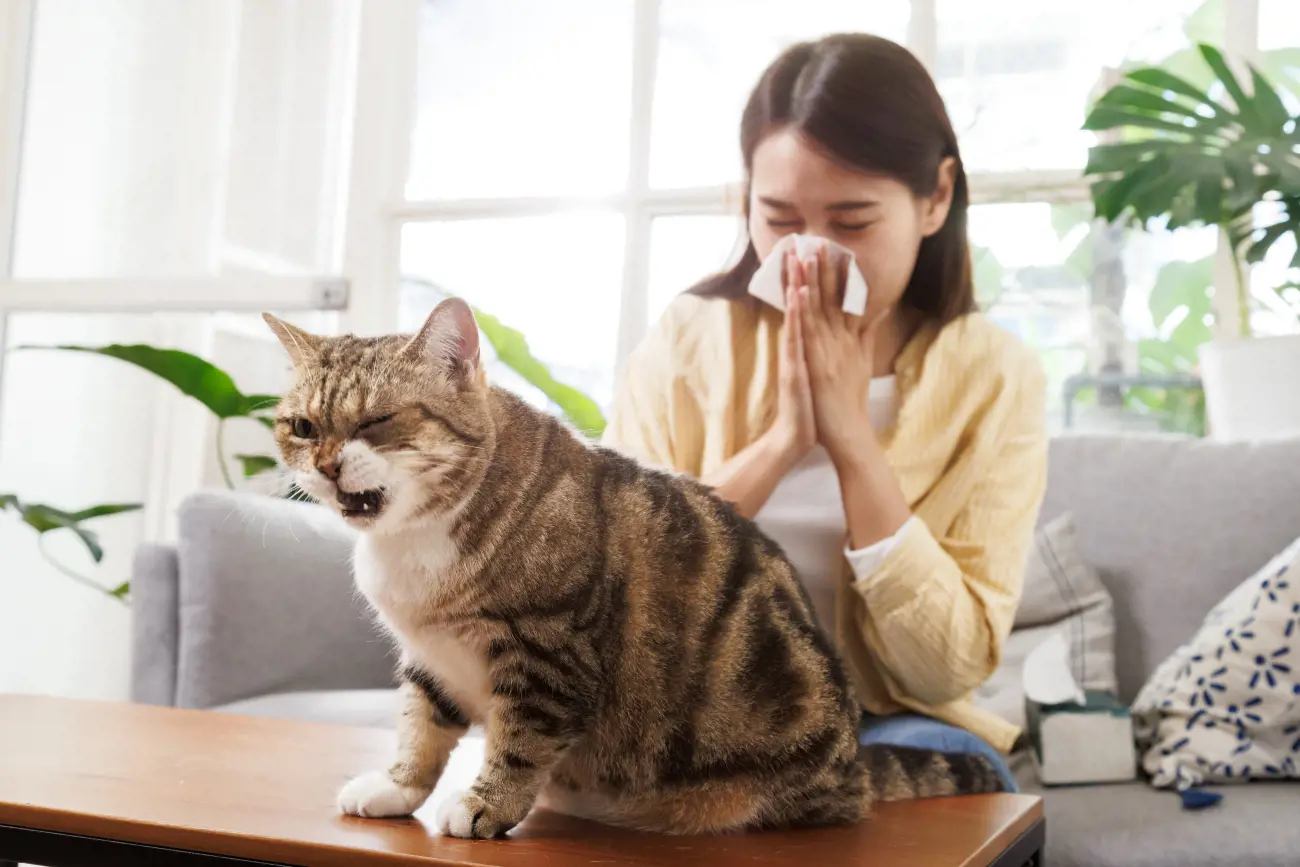How to care for a dog with stitches
23rd October, 2020

Whether your dog has undergone major or minor surgery, nursing them back to health is a big challenge for any owner. With adequate pet cover helping to take care of the financial pressures you can focus on giving your four-legged friend the nurturing they’ll need.
After all, even a simple straightforward operation like neutering or spaying or simply your dog's ear tip being ripped, will still require you to follow your vet’s post-surgery advice carefully. Prior to booking an appointment for spaying or neutering, make sure to check whether your pet insurance covers spaying and post-surgery, follow your vet's post-surgery advice carefully.
Fortunately, with just a little preparation and a bit of helpful information, caring for your dog’s stitches should be stress free.
Before your furry family member returns from the vet’s surgery, ensure that the rest of the household understands the plan for your pet’s post-op care.
Everyone will need to play their part to keep doggy’s stitches safe and clean.
Restricting activity
From day one, your dog’s activity levels will need to be restricted. These limits should remain in place for at least one to two weeks.
Even minor wounds need plenty of time to heal, and too much activity could cause stitches to stretch or even rupture.
Consider the side effects of any medication, too, which can slow your dog’s reflexes and make even everyday activities risky.
If you’re worried about how to restrict your playful pup’s activity, then follow these simple steps:
-
Only take them for short walks and always use a short leash.
-
Don’t leave them unsupervised with other dogs.
-
Stop any rough play immediately and don’t let other dogs lick the wound.
-
Discourage jumping on furniture.
-
Block stair access.
-
Consider temporary confinement in a crate or by tethering.
-
Provide a small, quiet, confined room for them to rest.

Inspect stitches regularly
There are many potential risks and problems resulting from surgery so keeping a close eye on your pooch is important.
If the wound isn’t covered by a dressing, then at least twice a day check to make sure it’s healing correctly and not becoming infected.
Healthy stitches could have:
-
No gaps around the operation site —the edges should be touching and clean.
-
A slightly reddish-pink colour to the skin.
-
Bruising and some swelling is normal and should go down after a couple of days.
-
A small amount of blood from a recent operation is okay.
-
A clear or light pink or yellow discharge may be present for the first few days. This is normal provided it’s pale in colour, there isn’t too much and it doesn’t smell bad.
Causes for concern include:
-
Persistent blood or fluids seeping from the wound.
-
Excessive swelling under and around the wound site.
-
Excessive pus or seepage of white or yellow fluid.
-
Excessive redness of the skin around the wound.
-
A bad smell around the wound or discharge.
-
The wound site is hot to the touch.
-
Pulled-out stitches.
-
The sides of the wound aren’t holding together.
-
Lumps or abscesses.
-
Lethargy, a high temperature or lack of interest in food.
These are unmistakable signs of an infection and your vet must be contacted immediately. Having adequate pet insurance already in place means you can feel confident to ask for help sooner rather than later.
However, don’t worry unduly as most dogs that undergo surgeries will not suffer any complications.
If you make sure your dog has plenty of time to rest and keep their stitches clean and dry, they’ll soon be back to their old self.

Follow medical advice
Following your vet’s post-operation instructions is essential for keeping your pet fit and healthy when they’re convalescing. After all, when you’ve gone to the effort of getting the best professional help, it’s vital to heed their advice.
Some wounds require a surgical drain to be fitted so that blood, pus and other fluids can drain appropriately from the wound. If your vet has done this then follow their instructions for keeping them clean.
Try not to bathe your dog as keeping the surgical incision and stitches dry is important. Unless instructed by your vet, don’t use any lotions, hydrogen peroxide or alcohol to clean the stitches as this can lengthen the healing process.
In the likely event your dog has come home with antibiotics and/or painkillers then follow any medication instructions.
Just as with their human owners, dogs need to be kept to a strict schedule for administering the medicine and the correct dosage.
Dogs can easily introduce infection or remove the stitches if they’re allowed to bite or lick their wound. To prevent this from happening the vet may send them back to you wearing a cone-shaped collar.
Dogs do not appreciate the importance of wearing this somewhat humiliating and uncomfortable contraption, but they must wear it!
To make yourself feel better remember that the longer they wear it, the sooner they’ll get used to it and the quicker they’ll get better.
If you’re unsure of anything be sure to ask for further explanation. Pet insurance policyholders with Purely Pets can contact our free 24-hour Vet Helpline at any time for advice from registered veterinary nurses who have a minimum of three years’ practical experience.
Plenty of cuddles
Okay, this is an easy one and doesn’t require much explanation.
After surgery your pooch will be feeling sorry for themselves and sorely in need of some TLC but be careful not to lift or pull them and rupture any stitches.
Beware also that they still might be in a lot of pain so they might act more aggressively than usual.

Recovery time
Recovery time from any surgery will depend on the procedure. Obviously, something routine and less invasive should heal within a couple of weeks.
A more complicated surgery could take several months. Also, depending on the type of stitches used, your dog might need a follow-up visit to the vet to remove any remaining sutures.
Protect your pet with Purely Pets
Unfortunately, operations can be a fact of life when it comes to veterinary treatment, but large bills don’t have to be. With Purely Pets, you’ll always have the support to help you deal with the unexpected.
With 15 levels of lifetime cover, including cover for vets’ fees ranging from £1,000 to £15,000 per year, we have pet insurance policies to suit every budget.
In addition, our online Manage My Policy portal allows you greater flexibility to manage your policy at a time that suits you.
Get a quick quote from Purely Pets today.
Frequently asked questions
Knowing if your dog's wound is infected is crucial for its speedy recovery. Look out for signs such as increased redness, swelling, or a foul odour coming from the wound. Other indications could be pus or discharge, a change in colour of the wound, or if your dog seems to be in pain or discomfort. If your dog seems lethargic or loses appetite, it could also signal an infection. Always remember, if you're unsure, it's best to consult with a vet.
After your dog has undergone surgery, alleviating their pain becomes a top priority. Always follow your vet's advice to ensure your dog's swift and comfortable recovery. It's crucial to remember that you should never give your dog human medication unless instructed by your vet.
Over-the-counter products like ibuprofen can be toxic to dogs. Non-drug approaches such as gentle massage, warm blankets, or a quiet, comfortable space to rest. Always follow your vet's advice to ensure your dog's swift and comfortable recovery.
It's essential to keep your furry friend's stitches dry to promote healing and prevent infection. Water can break down the adhesives used in some types of sutures, potentially causing them to come loose. Moreover, both chlorinated water from pools and natural bodies of water can introduce bacteria to dog's fresh surgical incision.
You should consult with your vet before making any decisions. They might recommend short, gentle walks or advise you to avoid any exercise completely until the stitches are removed. Remember, your dog's health is of utmost importance and any physical activity could potentially disrupt the healing process.
This is a common post-surgery concern among pet owners. Your dog's natural instinct is to lick and chew at any incision site, but this can lead to infection, delay healing, or even cause stitches to come undone. To prevent this, consider using an Elizabethan collar (E-collar) or inflatable collar which makes it difficult for your dog to reach the stitches. However, if your dog continues this behaviour, it's best to consult your vet immediately for professional advice.
The typical healing time for a dog's surgical incision is around 10 to 14 days. However, this can vary based on factors such as your dog's age, overall health, and the nature of the surgery. It's important to keep an eye on the wound and contact your vet if you notice any signs of infection or other complications.
Helpful Pages
Recent Posts

Why do Great Danes bury their heads?
12/03/25
Find out more about Beagles
28/02/25Pet Insurance Quote
- 98% claims paid *
- Claims paid directly to vets
- 24/7 vet video consultations
- Interest free monthly payments


